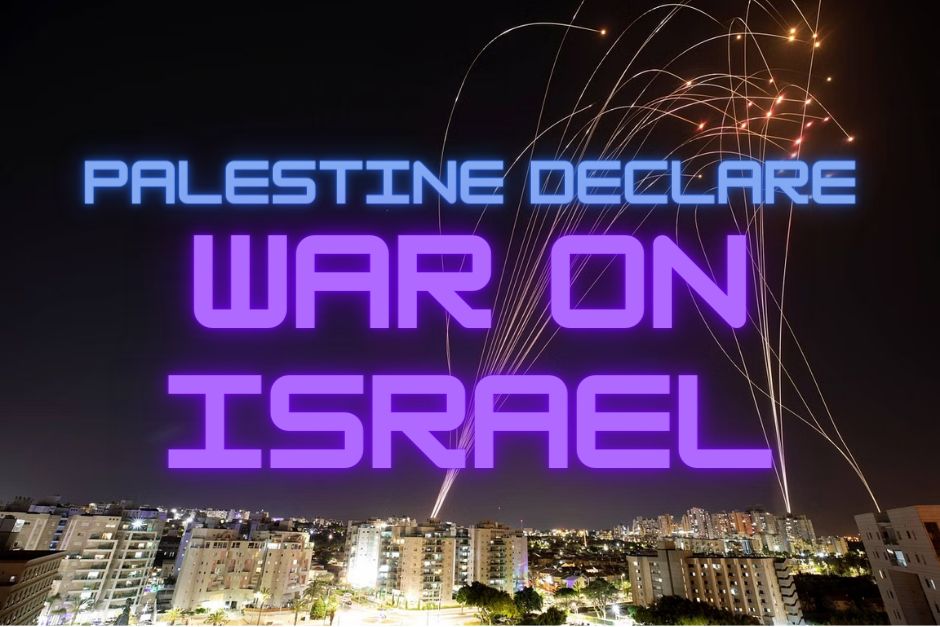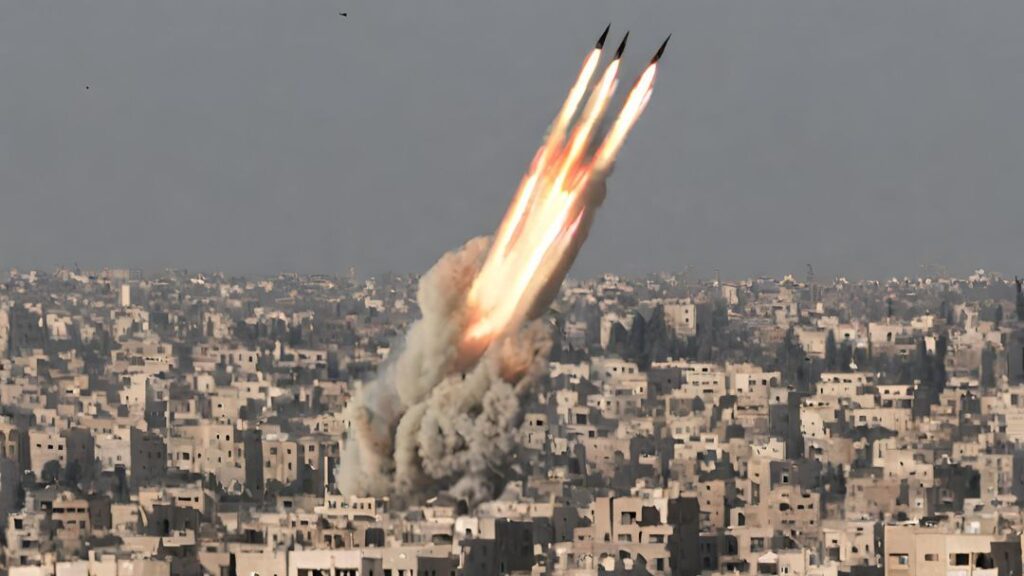Table of Contents
The long-running conflict between Israel and Palestine has reached a new level of violence and tension, as Palestinian factions in Gaza have fired thousands of rockets towards Israel, and Israel has responded with airstrikes and ground operations. The escalation, which began on October 7, 2023, has resulted in dozens of deaths, hundreds of injuries, and widespread destruction on both sides. It is the most serious flare-up since the 11-day war in May 2021, which killed more than 250 people and displaced thousands more.
What triggered the escalation?
The escalation was triggered by a series of events that inflamed the already volatile situation between Israel and Palestine. On October 6, Israeli forces raided the al-Aqsa mosque compound in Jerusalem, one of the holiest sites for Muslims, and clashed with Palestinian worshippers who were celebrating the Islamic New Year. The raid was condemned by Palestinian leaders and Islamic countries as a provocation and a violation of the status quo agreement that governs the site.
On the same day, a Palestinian gunman shot and killed two Israeli soldiers and wounded a third near the West Bank city of Nablus. The gunman was later killed by Israeli forces. The attack was claimed by the al-Quds Brigades, the military wing of the Islamic Jihad movement, a Palestinian militant group that operates in Gaza and the West Bank. The attack was praised by Hamas, the Palestinian militant movement that runs Gaza, as a heroic act of resistance.
On October 7, Hamas issued an ultimatum to Israel, demanding that it withdraw its forces from the al-Aqsa mosque compound and release all Palestinian prisoners by 6 a.m. local time (3 a.m. GMT). Hamas warned that if Israel did not comply, it would launch a massive rocket attack on Israel. Israel rejected the ultimatum and said it would respond with force to any aggression from Gaza.
At 6:30 a.m. local time (3:30 GMT), Hamas and other Palestinian factions in Gaza began firing rockets towards Israel from multiple locations, in what they called “Al-Aqsa Storm” operation. The rocket fire was unprecedented in its intensity and range, reaching as far as Tel Aviv, Jerusalem, and other major cities in central and southern Israel. Israel’s Iron Dome air defense system intercepted most of the rockets, but some managed to hit their targets, causing casualties and damage.
At the same time, several groups of Palestinian gunmen infiltrated into Israeli territory from Gaza through underground tunnels or by sea. They engaged in firefights with Israeli soldiers and civilians near the border areas, killing at least one Israeli civilian and wounding several others. Some of the gunmen were killed or captured by Israeli forces, while others managed to escape back to Gaza.
Israel’s military announced a “state of war alert” and mobilized its reserves to deal with the unprecedented attack from Gaza. It also launched airstrikes and artillery shelling on Gaza, targeting Hamas and Islamic Jihad leaders, operatives, facilities, weapons, tunnels, and launch sites. It also sent ground troops into Gaza to destroy the tunnels and prevent further infiltrations.
What are the consequences of the escalation?
The escalation has had devastating consequences for both Israelis and Palestinians, who have been living in fear and uncertainty for days. According to the latest reports from health officials and media sources:
- At least 44 people have been killed in Gaza, including 12 children and four women. More than 300 people have been injured, many critically.
- At least one person has been killed in Israel, a 70-year-old woman who was hit by a rocket in southern Israel. More than 50 people have been injured, some seriously.
- Hundreds of buildings have been damaged or destroyed in Gaza and Israel, including homes, schools, hospitals, mosques, synagogues, factories, shops, etc. Thousands of people have been displaced or left homeless.
- Electricity and water supplies have been disrupted or cut off in many areas in Gaza and Israel, due to damage to infrastructure and fuel shortages.
- Communication and internet services have also been affected or blocked in some areas.
- Humanitarian and medical aid have been hampered or delayed by the ongoing violence and restrictions.
- International and regional reactions have been mixed or muted, with some countries and organizations calling for an immediate ceasefire and de-escalation, and others expressing support or condemnation for one side or another.
- The United Nations, the European Union, the Arab League, the Organization of Islamic Cooperation, and several countries such as Egypt, Qatar, Turkey, Iran, Russia, China, France, Germany, and the United Kingdom have urged both parties to stop the violence and resume dialogue.
- The United States, Israel’s main ally, has said it supports Israel’s right to self-defense, but also called for calm and restraint from both sides.
What are the prospects for a resolution?
The prospects for a resolution of the escalation are uncertain and depend on several factors, such as:
- The willingness and ability of both parties to stop the violence and agree to a ceasefire. This may require mediation and pressure from third parties, such as Egypt, Qatar, the United Nations, or the United States, who have played a role in brokering previous ceasefires between Israel and Gaza. However, the current situation is more complex and challenging than before, as both sides have raised their demands and expectations, and have less trust and communication with each other.
- The political and public opinion in both Israel and Palestine, which may influence the decisions and actions of their leaders. Both sides face internal divisions and pressures from their constituencies, who may support or oppose the continuation or cessation of the hostilities. Both sides also face external challenges and opportunities from their regional and international allies and rivals, who may offer or withhold their support or intervention.
- The underlying causes and grievances that fuel the conflict, such as the occupation, the blockade, the settlements, the refugees, the holy sites, etc., which have not been addressed or resolved for decades. These issues require a comprehensive and lasting political solution that can ensure the rights, security, dignity, and peace of both Israelis and Palestinians. However, such a solution seems elusive and distant, as the peace process has been stalled and undermined by various factors, such as violence, extremism, mistrust, unilateral actions, etc.
What happens now?
The latest escalation in the Israel-Palestine conflict is a tragic and dangerous development that threatens the lives and livelihoods of millions of people on both sides. It is also a reminder of the urgency and necessity of finding a peaceful and just solution to the conflict that can end the cycle of violence and suffering that has plagued both peoples for generations. Until then, the risk of further escalation and confrontation remains high and unpredictable.



